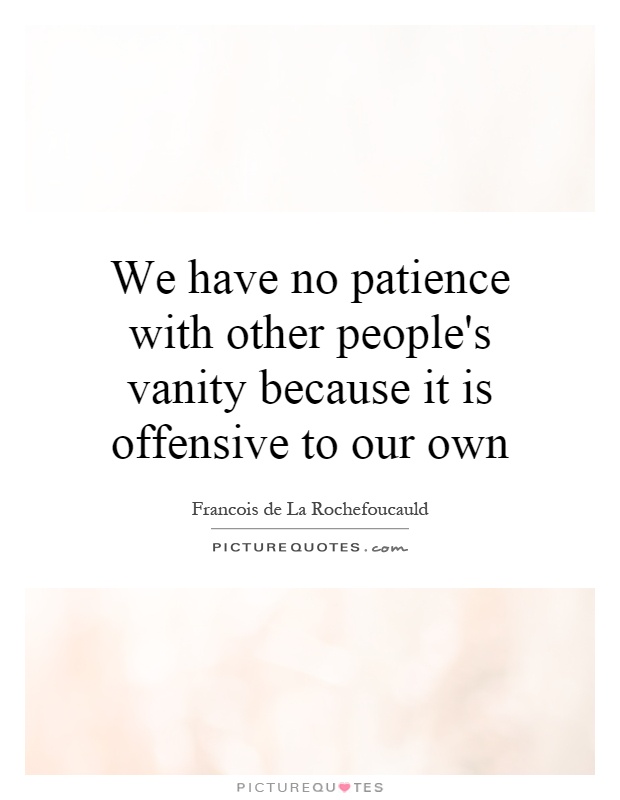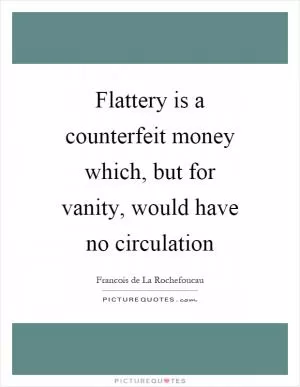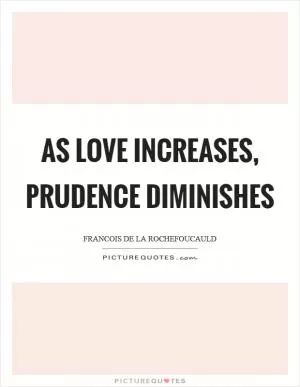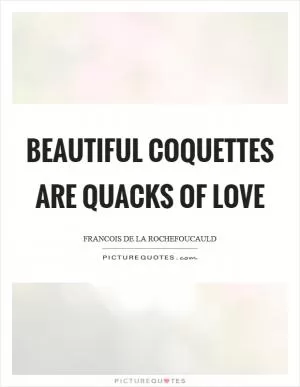We have no patience with other people's vanity because it is offensive to our own

We have no patience with other people's vanity because it is offensive to our own
Francois de La Rochefoucauld, a French author and moralist, is known for his sharp wit and keen observations on human behavior. One of his most famous quotes is, “We have no patience with other people's vanity because it is offensive to our own.” This statement reflects La Rochefoucauld's belief that people are quick to judge and criticize others for their flaws and shortcomings, especially when those flaws mirror their own insecurities.Vanity, or excessive pride in one's appearance or achievements, is a common trait that many people possess. However, La Rochefoucauld suggests that when we see this trait in others, it can trigger feelings of discomfort and annoyance because it forces us to confront our own vanity. By pointing out the flaws in others, we are attempting to distance ourselves from those same flaws and protect our own fragile egos.
In a society that values success, wealth, and beauty, it is easy to become consumed by our own vanity and insecurities. We may feel threatened by those who appear more successful or attractive than us, leading us to judge and criticize them in an attempt to boost our own self-esteem. La Rochefoucauld's quote serves as a reminder that our reactions to others' vanity are often a reflection of our own insecurities and shortcomings.
Furthermore, La Rochefoucauld's observation highlights the complex nature of human relationships. We are quick to judge and criticize others for their flaws, yet we are often blind to our own faults. By recognizing our own vanity and insecurities, we can develop a greater sense of empathy and understanding towards others. Instead of being offended by someone else's vanity, we can strive to cultivate a sense of humility and self-awareness that allows us to see beyond the surface and connect with others on a deeper level.












 Friendship Quotes
Friendship Quotes Love Quotes
Love Quotes Life Quotes
Life Quotes Funny Quotes
Funny Quotes Motivational Quotes
Motivational Quotes Inspirational Quotes
Inspirational Quotes